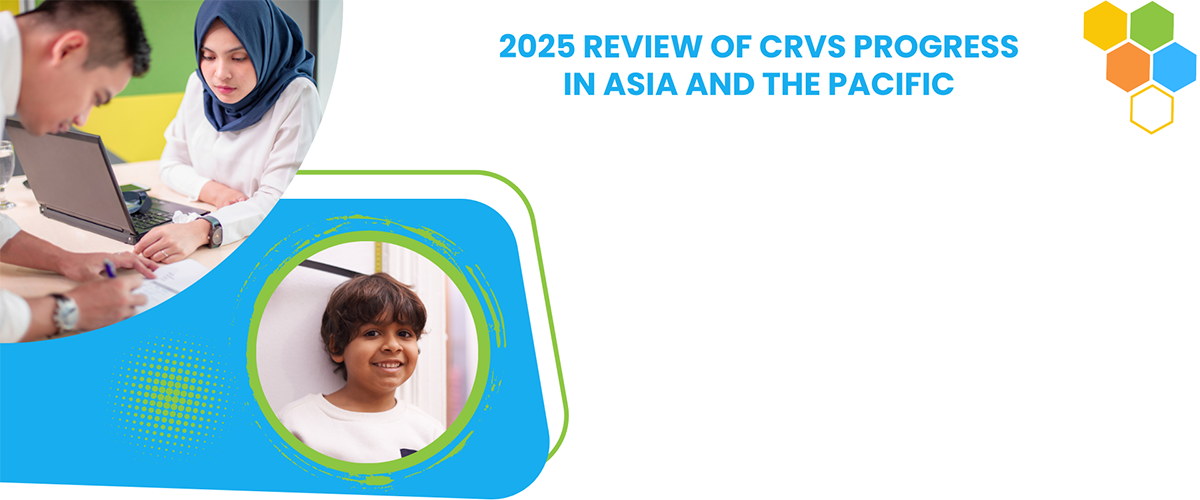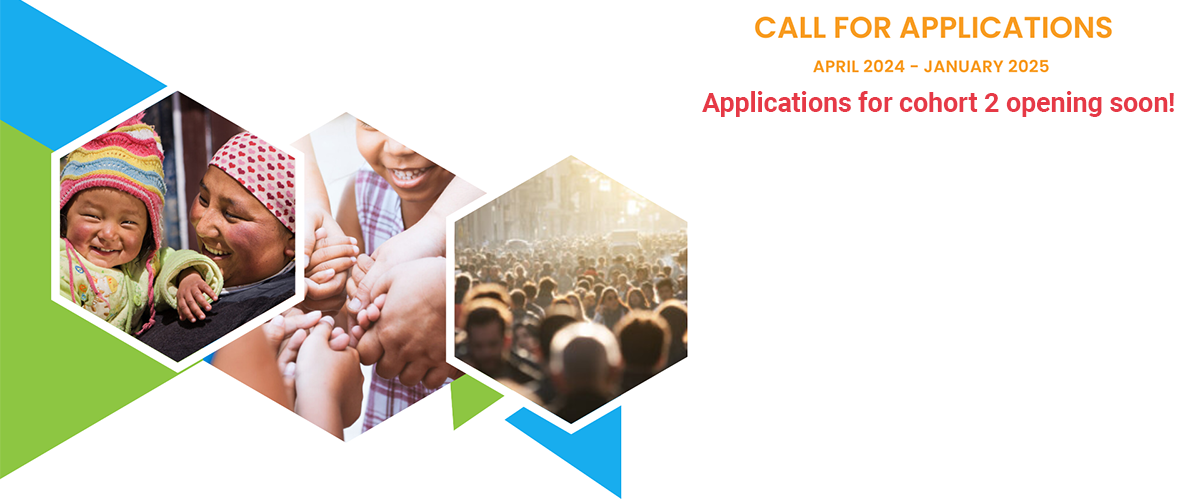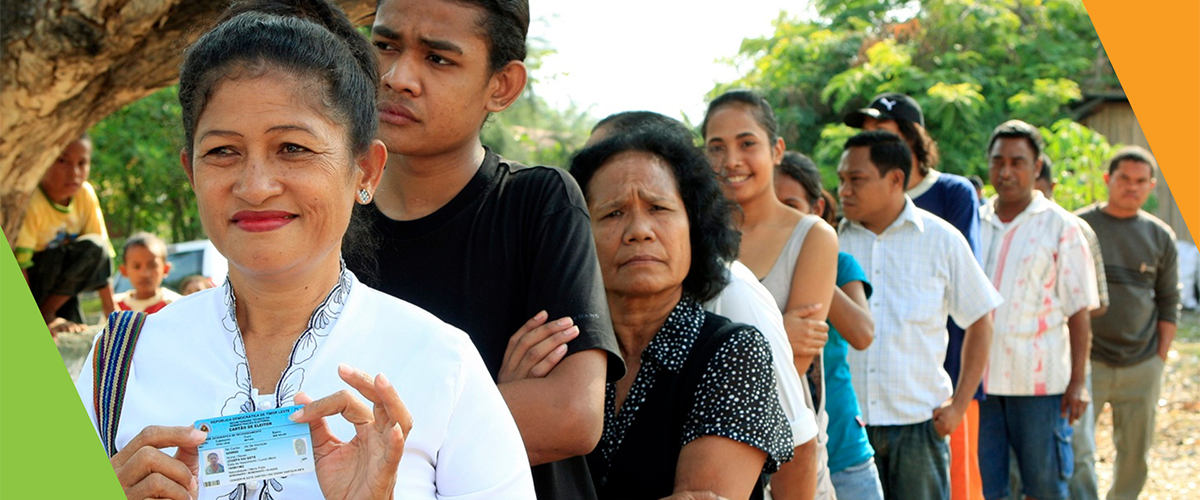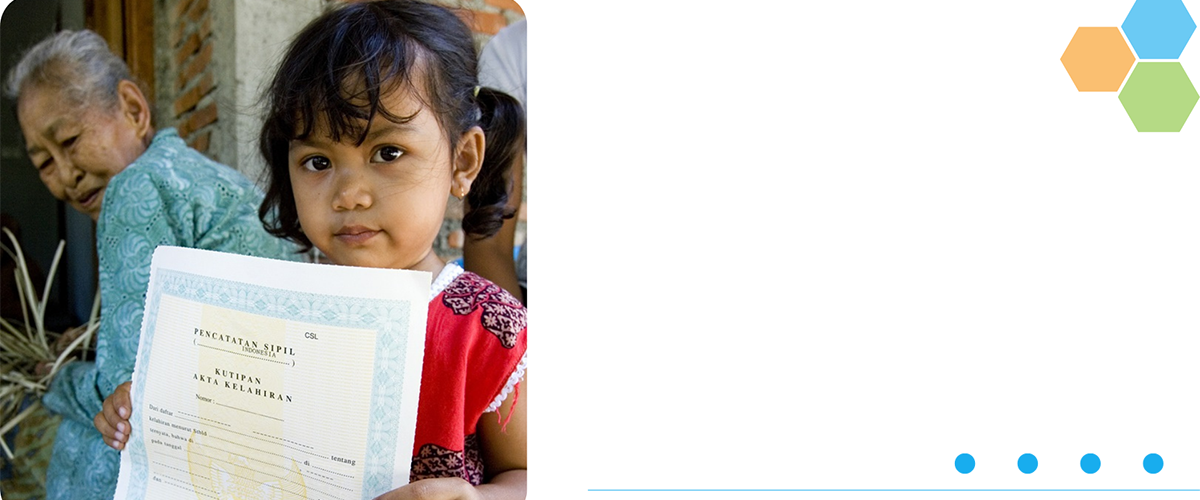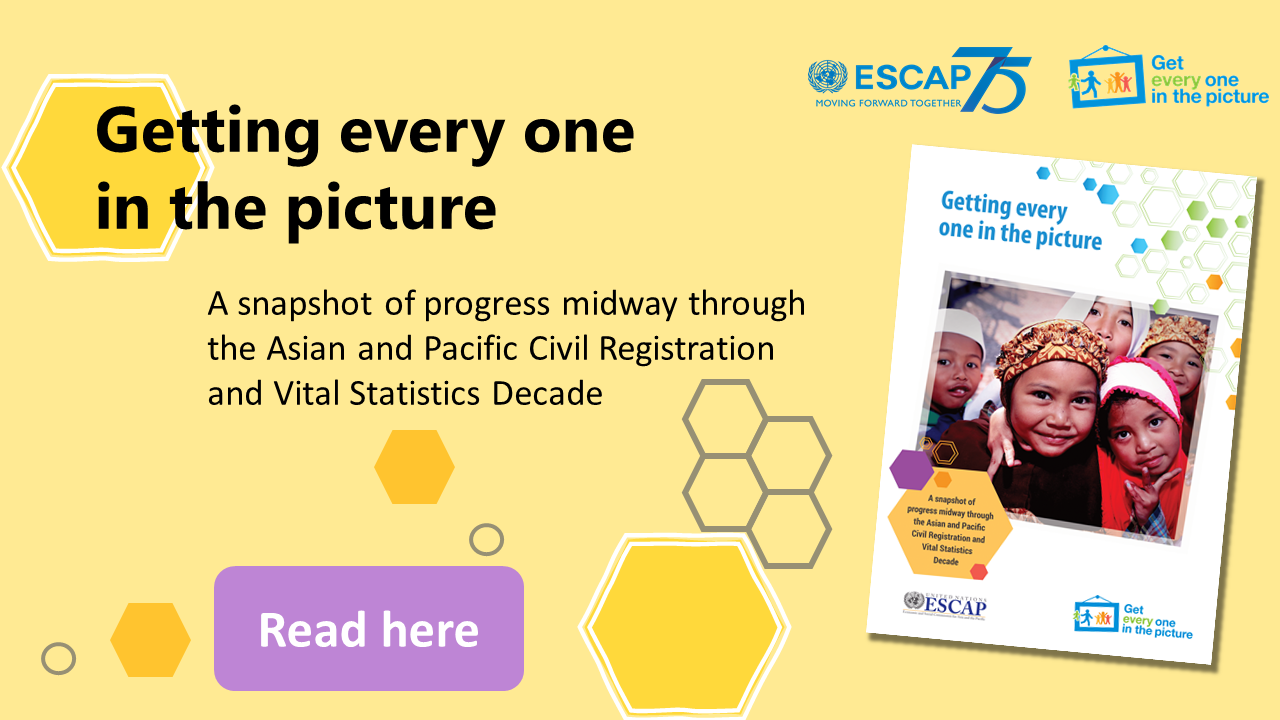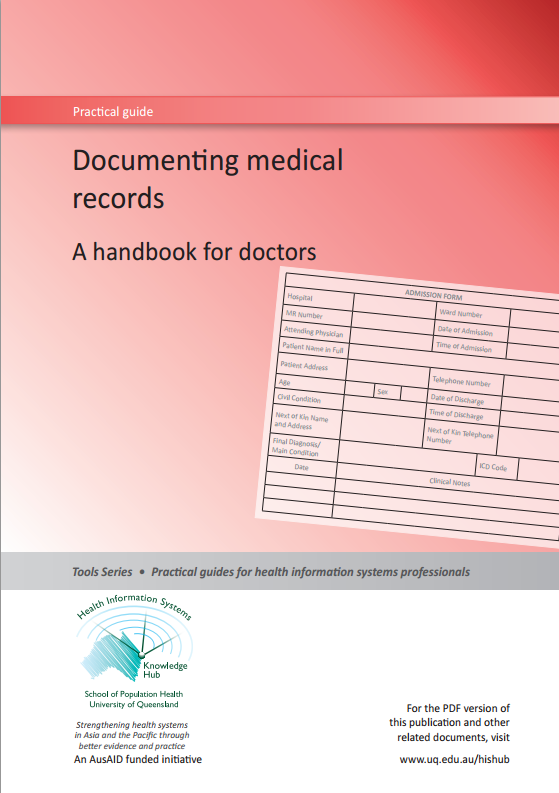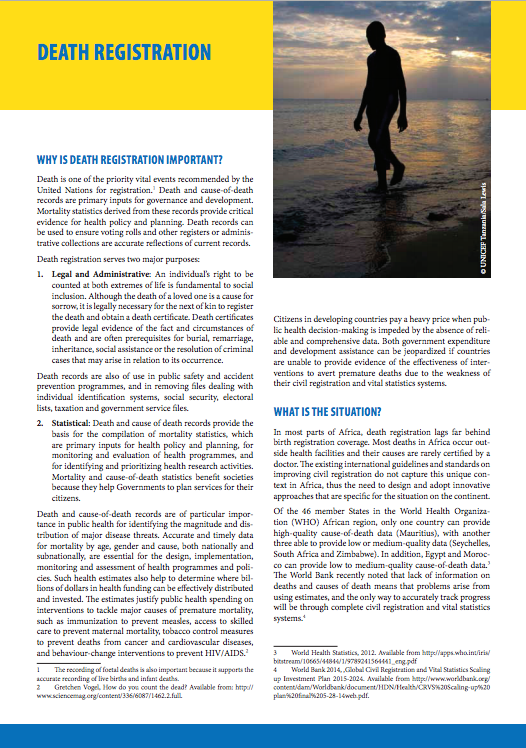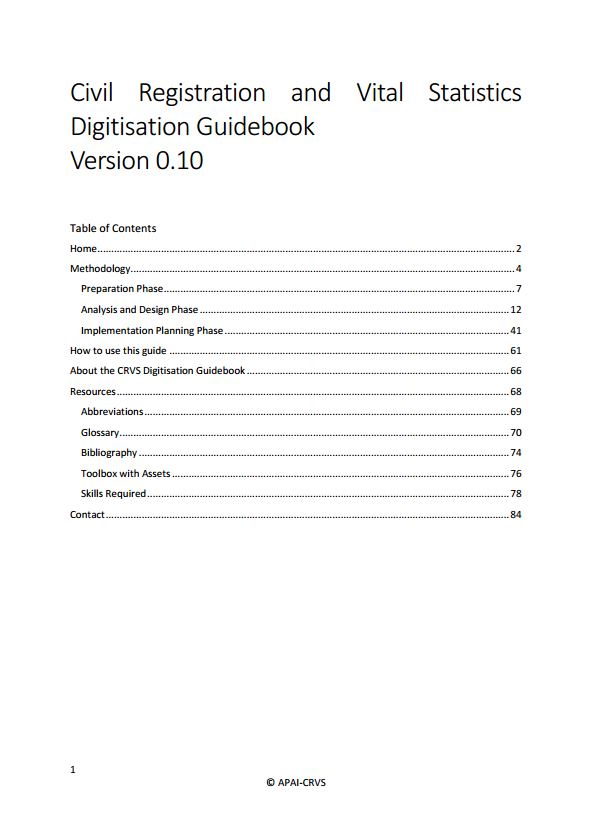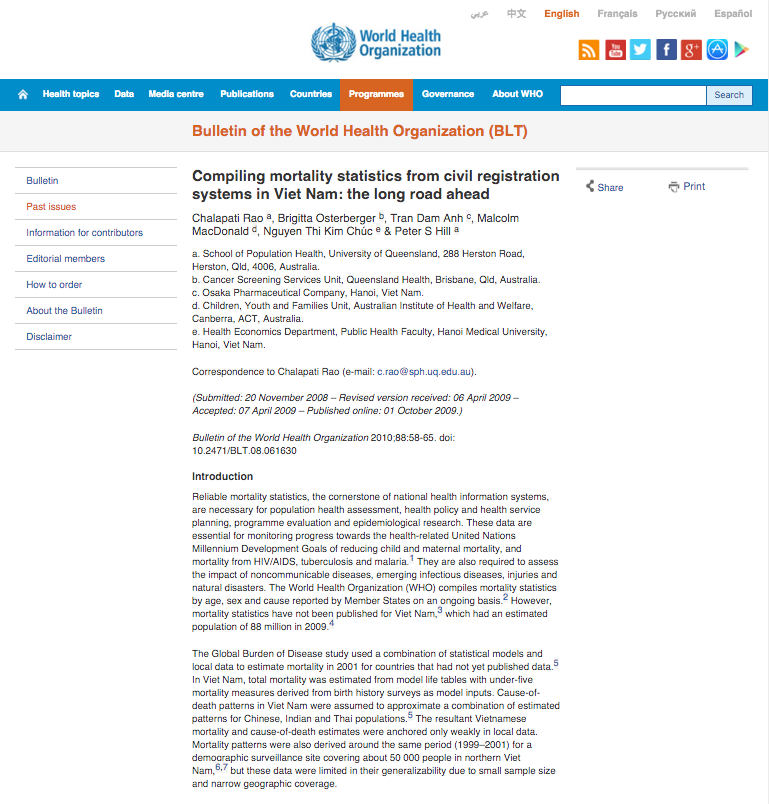eVitals Standards initiative to enable interoperable electronic data exchanges
CDC/NCHS is providing support and has been collaborating with the National Association for Public Health Statistics and Information Systems (NAPHSIS) and other VR stakeholders to support the eVital Standards Initiative with the goal of providing support for the development of VR standards to enable interoperable electronic data exchanges among electronic health record systems, U.S. vital records systems and potentially other public health information systems for birth, death and fetal death events


